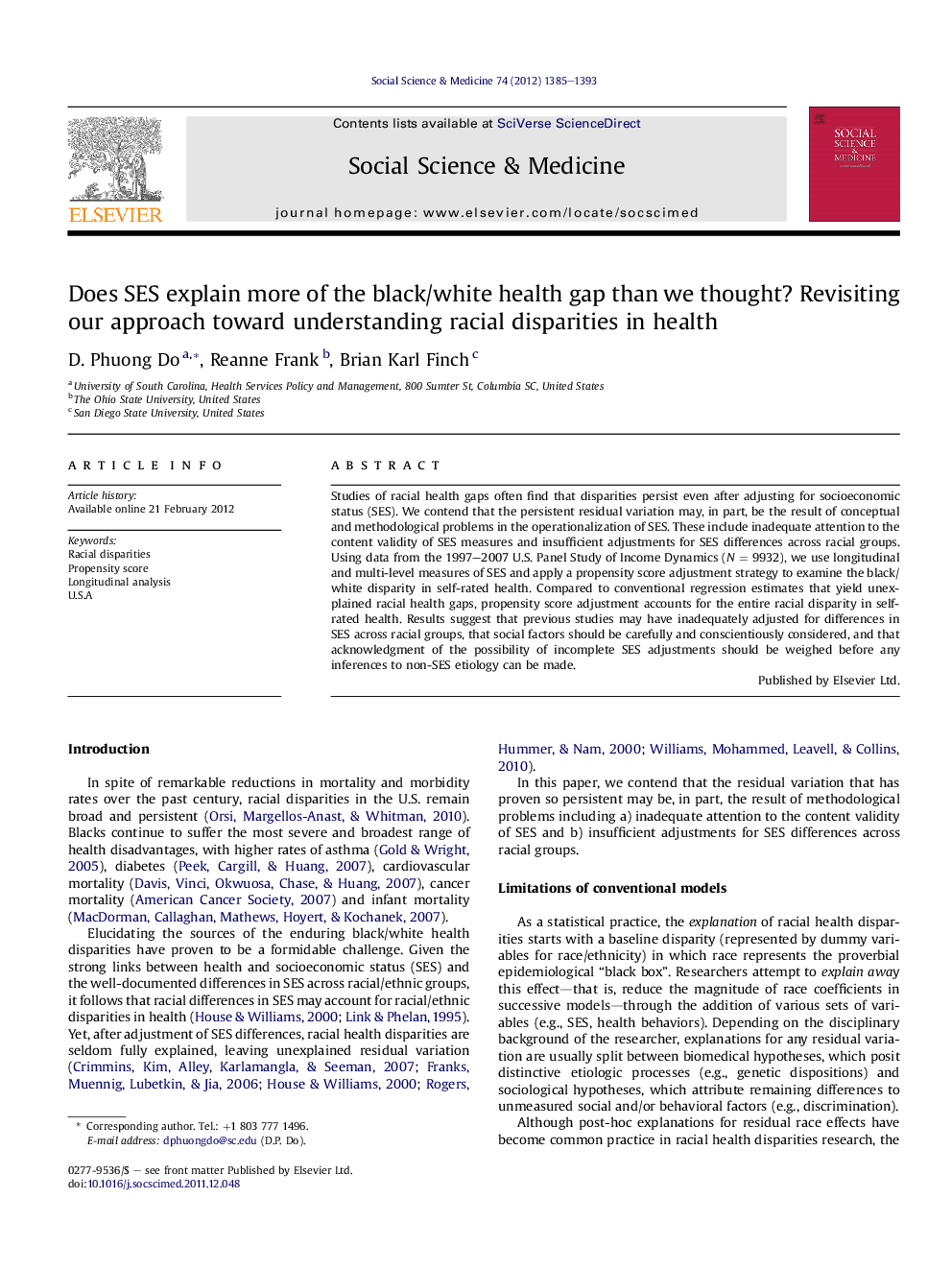| Article ID | Journal | Published Year | Pages | File Type |
|---|---|---|---|---|
| 952501 | Social Science & Medicine | 2012 | 9 Pages |
Studies of racial health gaps often find that disparities persist even after adjusting for socioeconomic status (SES). We contend that the persistent residual variation may, in part, be the result of conceptual and methodological problems in the operationalization of SES. These include inadequate attention to the content validity of SES measures and insufficient adjustments for SES differences across racial groups. Using data from the 1997–2007 U.S. Panel Study of Income Dynamics (N = 9932), we use longitudinal and multi-level measures of SES and apply a propensity score adjustment strategy to examine the black/white disparity in self-rated health. Compared to conventional regression estimates that yield unexplained racial health gaps, propensity score adjustment accounts for the entire racial disparity in self-rated health. Results suggest that previous studies may have inadequately adjusted for differences in SES across racial groups, that social factors should be carefully and conscientiously considered, and that acknowledgment of the possibility of incomplete SES adjustments should be weighed before any inferences to non-SES etiology can be made.
